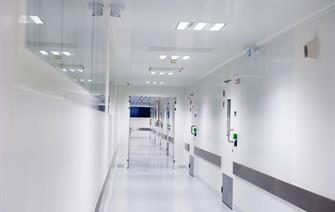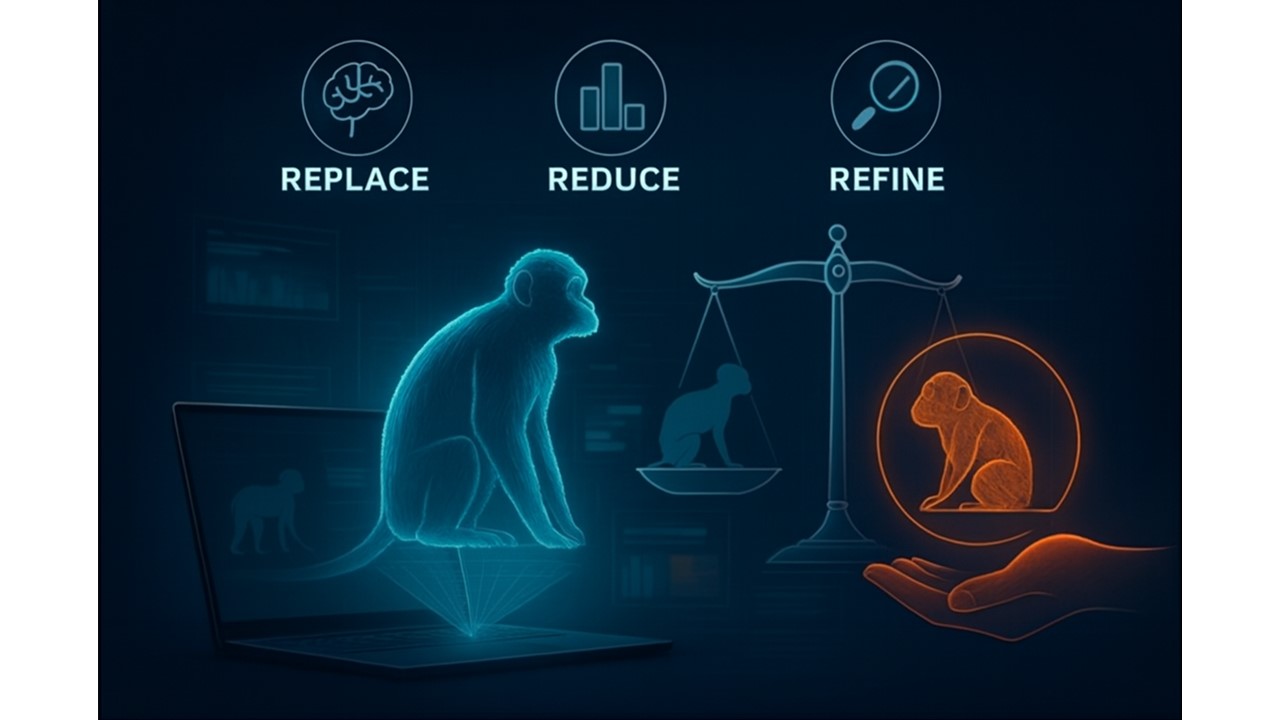IDMIT has developed advanced expertise in the design and implementation of preclinical animal models. This know-how is centralized within the "Animal Science and Welfare" (ASW) laboratory, which brings together a multidisciplinary team of technicians, engineers, researchers, and veterinarians specialized in both the development of animal models and the promotion of animal welfare.
ASW laboratory provides the scientific community with rigorous, relevant, and predictive preclinical models to improve the understanding of the physiopathology of infections and to evaluate therapeutic and prophylactic strategies against human infectious diseases. To this end, several species of rodents and non-human primates are housed in our biosafety level 1, 2, and 3 containment animal facilities.
|  Animal facilities in BSL3 conditions © CEA
|
ASW laboratory is equipped with a surgical equipment and tools for monitoring physiological parameters through non-invasive techniques and telemetry. It collaborates closely with the in vivo imaging platform of the L3I laboratory. An integrated clinical biology platform within ASW laboratory also enables hematological and biochemical analyses required for preclinical studies. Furthermore, the laboratory has developed expertise in respiratory transmission pathways, aerosol characterization, and respiratory physiology, in order to establish models of infection via natural routes of exposure.
In addition to complyi with European and French regulations on animal research, ASW laboratory is strongly committed to the 3Rs principle (Reduction, Refinement, and Replacement), which forms the ethical foundation of animal experimentation. The laboratory is also engaged in the AAALAC accreditation process, an international standard promoting high-quality science alongside animal and human welfare. The overarching goal is to use fewer animals, treat them better, and replace them with alternative methods whenever possible.
|  © IDMIT / CEA © IDMIT / CEA
|
The Animal Welfare Unit of the IDMIT Department, together with the CEA Animal Experimentation Ethics Committee, ensures compliance with ethical standards for all in vivo research projects conducted within the Department. Each project undergoes rigorous evaluation and monitoring to assess scientific relevance, protocol acceptability, and animal welfare, with the objective of continuously improving practices in accordance with animal well-being and high-quality scientific standards.